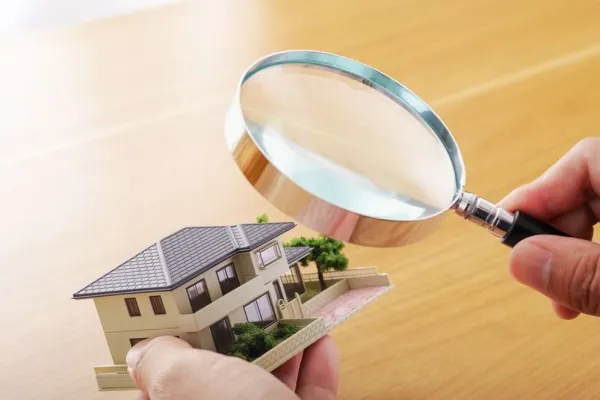It’s often difficult to say goodbye to a house.
You may want to hold on to a piece of it.
In that case, converting it into a leasehold could offer the ‘best of both worlds’.
So, is this possible? And what are the downsides?
Read on to find out.
Can I sell my freehold house as leasehold?
Yes, this is possible. You can do this by creating a new leasehold title.
This means that you’ll keep ownership of the land underneath your property.
You might put off lots of buyers, though, who won’t like this arrangement.
Speak to a qualified solicitor who can advise you on the process and assist with paperwork.
There’s also regulations you’ll need to follow, such as if you’re converting it into flats.
See more on the full process further below in this blog.
How to sell freehold house as leasehold
Contact a qualified solicitor
It’s crucial that you get support from a qualified solicitor. They can assess your situation and explain whether it’s doable.
They’ll ensure that you complete all paperwork. And follow correct procedure.
You will feel far more relaxed and will be guided on issues you might not have thought about. The end result is more likely to be a success.
Professional indemnity insurance may give you protection if something goes wrong.
Create a lease agreement
Your lease must be created before you can register it.
This involves careful thought about the terms, such as acceptable behaviour and length.
You must also decide on the financial side of this lease.
For example, how much is ground rent and service charge? And what services are provided for the latter?
Your solicitor will have advice on these matters.
The document should align with your personal and financial priorities.
Register the lease with the land registry
You must register your lease with the land registry.
Your solicitor will take care of this. It guarantees that the leasehold arrangement is ‘official’.
The freehold will remain with you, and future buyers will thus sign a lease agreement.
Ensure everything is complete before selling
Don’t throw your house on the market until you’ve got final approval from your solicitor.
Is everything correctly registered, and do you have full understanding of the situation?
You’ll need to explain the arrangement with any estate agent you work with.
It’ll impact property value and how they market it to viewers.
Selling a freehold is a right
You usually have the right to sell a freehold as a leasehold.
A possible exception is if a covenant exists forbidding this. Or if your house is part of a larger development. In which case, you may need consent.
To convert from freehold to leasehold for flats, this needs planning permission. It counts as ‘development’.
Reasons to sell a freehold house as leasehold
Dividing a house into flats
This is the most common explanation.
You’ll need to create a lease that’s associated with the property when you rent it out, or sell it, as flats.
Property developers do this to improve their income. And benefit from owning the land in some way.
Keep in mind that you’ll need planning permission to change your house into flats.
Emotional attachment to the house
It can be difficult to say goodbye to a house.
Especially if you’ve got a strong emotional attachment to it.
In rare cases, it could even be because family members are buried beneath the house.
In this case, retaining ownership of the land may be a symbolic gesture, that keeps you tied to it.
In theory, if the lease ever expires, the house transfers back into your name.
The land is particularly valuable or significant
Perhaps the land beneath your property has a value unto itself.
If your property is in a desirable area, the land could be quite valuable.
Furthermore, you might’ve put considerable investment into the land surrounding your house. Landscaping is one example.
If you’ve increased the land value as a result, you may want to benefit from this.
Especially since land value is expected to grow, like house prices.
Create ongoing annual income (albeit small)
You’ll receive annual income when you turn your freehold into a leasehold, albeit a small amount.
This comes from ground rent and service charge (if you take a percentage).
You could also charge a fee for any lease extensions in the future. This can sometimes represent thousands of pounds.
Drawbacks of selling a freehold house as a leasehold
Lower sale value
A leasehold property sells for less than a freehold.
This could range from a 5% to 15% difference in price, depending on the circumstances.
You should get personalised advice from a valuer near you.
You’ll thus be reducing your sale value by many thousands of pounds.
Extra hassle
When you keep ownership of the land, there’s quite a bit of hassle that comes with it.
Lease extensions are complex and involve negotiation. A solicitor will need to support you, as well.
Maintaining the land and common areas is time-consuming, even if you’re arranging it.
And you’ll get questions or requests from your leaseholders every now and then.
Minimal financial reward
There’s not much financial reward to this approach.
Ground rent and service charge payments are usually minimal. Especially since legal support is sometimes needed, which involves a fee.
Furthermore, when a service charge or ground rent payment is late, you may need to pick up the shortfall yourself, while you chase it. And the land is rarely that valuable.
Freehold to leasehold conversions impact on price
It depends on the circumstances. Anywhere from 5% to 15% is typical.
A more restrictive lease and high ground rent translates into a greater reduction in price.
But a long lease, with relaxed terms and low ground rent will keep quite a lot of value.
















